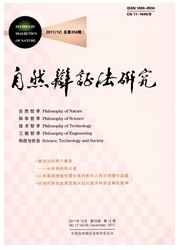

 中文摘要:
中文摘要:
生命的多样性被进化论归因为随机突变,然而引起变异的根本原因在于条件因素的改变。除了外部的环境,机体还积极创造着自己的内环境;躯体的疾患,与其说来自细胞结构的异常,不如说源于体内生境平衡或稳定性的丧失。在微观层面,那些能与其它基因所提供的遗传气候相协调的基因得到了进化的偏爱。后天外在环境造成的经验影响可以在不更改DNA序列的情况下,通过表观遗传对基因进行修饰使其表达发生转变,从而在代际间继承。可遗传的环境印记挑战了生物学的中心法则,无论哪些特定的基因被激活,表观遗传效应都被环境所诱发,基因的作用更多地缘于生物体对环境刺激的回应。
 英文摘要:
英文摘要:
Evolutionary theory attributes the diversity of life to random mutations. Yet the underlying causes of variation are changes in environmental con- ditions. The body does not just live in the surrounding environment, but also actively creates its own internal environment. At the micro level, genes that are compatible with the genetic climate provided by other genes are favored by evolution. The acquired experience caused by the external environment can modify genes through the epigenetic way so that its expression may be changed without changing the DNA sequence. Hereditary environmental imprinting challenges the central principle of biology : epigenetic effects are induced by the environment no matter what specific genes are activated.
 同期刊论文项目
同期刊论文项目
 同项目期刊论文
同项目期刊论文
 期刊信息
期刊信息
